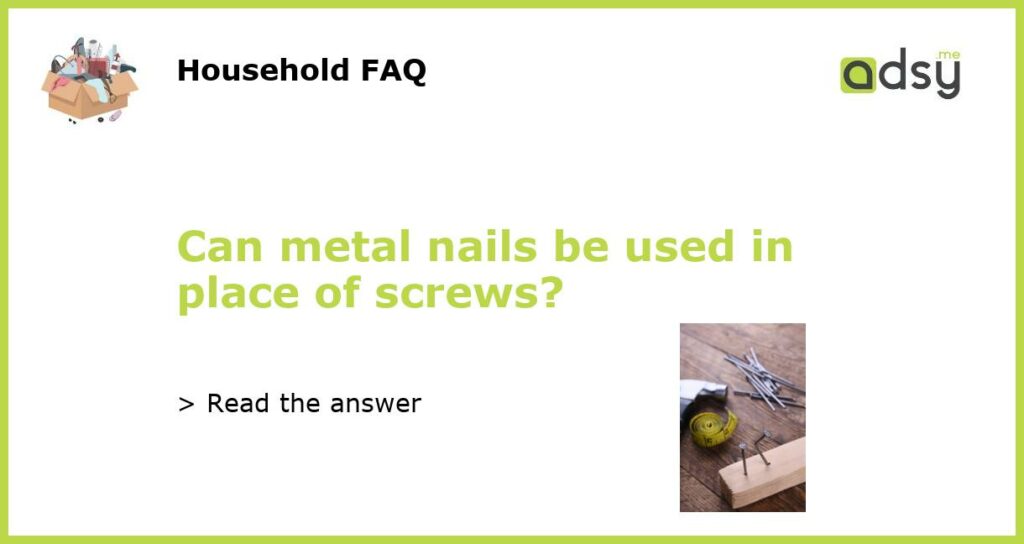Using Metal Nails Instead of Screws: Is It a Good Idea?
When it comes to building and construction projects, nails and screws are among the most commonly used fasteners. While each has its strengths and weaknesses, there are some instances where using metal nails instead of screws may seem like a good idea. But can metal nails really take the place of screws? In this article, we will explore this question and provide you with some insights on the subject.
Nails Versus Screws: The Main Differences
Nails and screws differ in several key ways, starting with their basic design. Nails are slender and pointed, with a head that is flattened or rounded. Screws, on the other hand, are more substantial and have a threaded shaft that is screwed into the material being fastened. Screws usually have a wider head that is designed to provide greater surface area for attaching the material.
When Nails Might Be a Good Choice
There are some instances where using nails instead of screws might be a better choice. For example, if you are attaching materials that are not under heavy stress and do not require a lot of holding power, nails can work well. Nails also tend to be faster and easier to install than screws, which can save time and effort.
When It’s Better to Stick with Screws
While using nails might seem like a good idea in some situations, there are also many cases where screws are the better choice. Screws offer increased holding power, which makes them ideal for structures that need to withstand heavy loads or strong forces. They also are less likely to loosen over time, which can make them a better choice for things like decking or roofing projects where durability is key.
In Conclusion: It Depends on the Project
In the end, whether to use metal nails or screws depends on the specific project you are undertaking. While nails might be faster and easier to install, screws offer greater holding power and durability, which can be crucial in certain applications. Always consider the materials you are attaching, the amount of force they will be under, and other factors when deciding which type of fastener to use. And remember, safety should always be your first priority when working with any type of tool or equipment.






